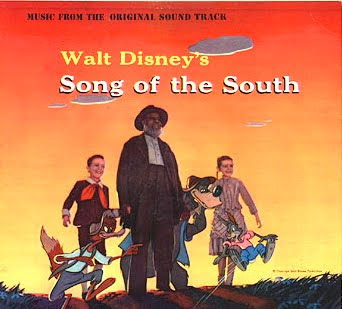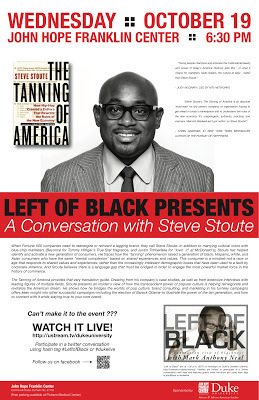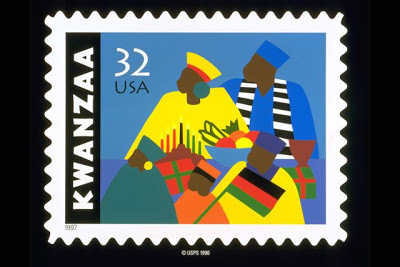Mark Anthony Neal's Blog, page 1036
December 29, 2011
Tricia Rose: "Saving Government Jobs to Keep the Playing Field Level"
Watch American Voices: Tricia Rose on PBS. See more from Need to Know.
American Voices | PBS
Tricia Rose , Professor of African-American Cultural Politics at Brown University, argues that cutting government jobs would derail a half-century of efforts to create a more level playing field in the workplace.[image error]
Published on December 29, 2011 07:18
December 28, 2011
The Frontstage is the New Backstage: Racism in the Public Square

TheFrontstage is the New Backstage: Racism in the Public Square byDavid J. Leonard | NewBlackMan
Threestories have captured the imagination of social media recently.
ABuffalo High school suspended several members of the basketball team becauseits members allegedly regularly chant racial epithets prior to each game. As reported in the Buffalo News, "Tyra Batts, the sole African-American on theKenmore East High School's squad," said "her teammates would hold hands beforethe game, say a prayer and then shout "One, two, three (n------).'" Batts, who was suspended because of herinvolvement in a fight resulting from the repeated use of the N-Word by herteammates, disputed claims that it "was just a joke." The efforts to defend itsusage and to deny the racist and violent history have set off anger and debatethroughout the web.
Notto be outdone, a P.h.D student at Rutgers University invited her whiteclassmates to a screening of the Disney Classic Song of the South. Aneditorial in The DailyTargum describes the circumstancesas follows:
This email invited "her fellow non-racist racists" toa private, guilt-free viewing of 1946 musical Song of the South in her home, where together they could engage incelebratory mocking of stereotyped 1940's images of southern blacks. This wasan event hosted by a "ragtime/minstrel loving fool" who was due "for somerollicking Disneyfied Ole Darkeyism." The postscript read, "If you do come,hooch is most welcome, as are straw hats and other Darkeyisms. I might even buya watermillyum if I get enough interest." It specified who invited guestsshould bring, given that "I might yell racist things at the TV." The author ofthis email articulated the hope that the experience would be a "communion withher shamefully preferred era of Disney."
Thecelebration of dehumanizing representations, the efforts to create a segregatedspace, and the replication of longstanding stereotypes provoked outrage,condemnation, and ample conversation on Facebook and Twitter. Citing it as evidence of the absurdityof a "post-racial America," the instance became another moment to protest thepersistence of white supremacist ideologies within contemporary America.
Yet,none of the outrage would compare to the anger, protests, and denunciation thathas followed Gene Marks ode to paternalism in Forbes Magazine. In "If I Were A Poor Black Kid," Marks provides "advice" that rehashes bootstrapsideology all while playing on longstanding stereotypes about black laziness anddisinterest in schooling. Following in the footsteps of Newt Gingrich and Donald Trump, Marks recyclesthose arguments that link black unemployment and poverty rates to work ethicand personal choice.
Hiscomments have produced a strew of commentaries that have condemned the articlefor its arrogance, paternalism, and overall erasure of structuralinequalities. "Mr. Gene justwants to give us some of that patented #WhiteLove™ that he has laying aroundthe house," writes Elon James White. "With a healthysprinkling, poor ignorant black children can rise above their station into themagical world of reasonable participation in society! Mr. Marks has a step-by-step booklet for you to get yourschool game on track, not your wig pushed back ... by poverty." James, like so many of the responses,identified the arguments offered in Forbesas not a peripheral aberration but instead a central white racial framewithin contemporary culture. Evident in The Help and The Blindside, reflected in politicaland academic discourses, and central to white racial framing, the narrativefocus on black pathological failures and the potential through betterparenting, better choices, and better work ethic, guides American racialdiscourse.
Yet,the social media world was abuzz with shock not because of the audacity ofpaternalism exhibited by Marks but because of the brash openness with hisracial arguments. There are nocodes and subtleties here; like Ginrich and Trump a few weeks before, thearguments and the racial dimensions central to the narrative are quitetransparent. As with thesituations at Rutgers and the New Jersey High school, the surprise stems notfrom the acceptance and promulgation of dehumanizing language, but the brazenand open exhibition of this racism.
Thesemoments highlight the absurdity of claims about a post-racial and the perpetualdealing of the race-denial card. These moments are reminders, albeit reminders to white America about thepersistence of white supremacy within contemporary society. Yet, beyond illustrating how racematters, these moments demonstrate the ways in which racial discourse andblatant racism has steadily moved out of the backstage into thefrontstage.
InTwo-Faced Racism, Leslie Picca andJoe Feagin explore the ways in which racial performances are carried in boththe frontstage (integrated andmultiracial public spaces) and the backstage (those private/semi-privateall-white spaces where race talk and racist ideas reveal themselves in profoundways). Their research found thatthe backstage offers whites a place to "perform, practice, learn, reinforce,and maintain racist views of and inclinations toward people of color. These views and inclinations play acentral role in generating and maintaining the overt and covert racialdiscrimination that is still commonplace in major institutions of this society"(27-28).
Increasingly,however, the frontstage is replacing the backstage whereupon whites arepublicly performing, learning, reinforcing and maintaining their racist viewstoward people of color. Evident incollege students donning blackface and then putting pictures online, evident inGene Marks, Newt Ginrich, Donald Trump and their reactionary pals lamenting thelaziness of black youth, evident in the usage of the N-word, evident inwhite-only movie screenings and white-only swimming pools, the lines between the frontstage and the backstageare blurring before our eyes. In other words, the frontstage is nowthe backstage, leaving me to wonder what sorts of ideologies, stereotypes andracial talk is transpiring in backstage. Or maybe, in a "post-racial America," widespread racism has returned(did it ever leave?) to the frontstage thereby illustrating the importance ofchallenging and resisting in each and every location.
***
David J. Leonard is Associate Professor in the Department of CriticalCulture, Gender and Race Studies at Washington State University, Pullman. Hehas written on sport, video games, film, and social movements, appearing inboth popular and academic mediums. His work explores the political economy of popularculture, examining the interplay between racism, state violence, and popularrepresentations through contextual, textual, and subtextual analysis. Leonard's latest book After Artest: Race and the Assault onBlackness will be published bySUNY Press in May of 2012. [image error]
Published on December 28, 2011 14:28
Black-Owned Beauty Shops Groom Political Activism
Published on December 28, 2011 14:22
December 27, 2011
Film Independent Interviews Cast of 'Pariah'
The film opens in select theaters on Dec 28. To learn more, visit pariahmovie.com. Watch a Q&A with the cast and crew, including star Adepero Oduye, writer/director Dee Rees, and producer Nekisa Cooper.
[image error]
Published on December 27, 2011 19:44
The Siwe Project: Promoting Mental Health in Global Black Communities
The Siwe Project :
The Siwe Project is a global non-profit dedicated to promoting mental health awareness throughout the global black community. The goal of the organization is to widen the public dialogue regarding the lived experiences of people of African Descent with mental illness. By providing opportunities for dialogue and the uplifting of new narratives and discourse, The Siwe Project aims to encourage more people to seek treatment without shame.
The Siwe Project: "Choices" Performer/Writer: Bassey Ikpi
Director: Pierre Bennu
Studio: Exit The Apple[image error]
Published on December 27, 2011 15:53
Shadow and Act Presents...2011 Films of The African Diaspora (in 7 minutes)
Shadow and Act :
Shadow And Act brings you its own 2011 black cinema zeitgeist - the year in review video compilation.
Edited wonderfully by our own Vanessa Martinez, who invested her precious time putting this 7-minute video together - tons of clips watched, cropping out just the right pieces of each to ensure that they all work well together, finding the right pieces of music, importing, exporting, listening to my critiques of each "draft" and making adjustments, importing and exporting some more, etc, etc, etc.
[image error]
Published on December 27, 2011 15:28
The Best of 'The State of Things' | Steve Stoute & the Tanning of America

The State of Things with Frank Stasio | WUNC
October 19, 2011
The Tanning of America
Steve Stoute has been in the middle of the hip-hop revolution since the early days, first as a music producer and promoter, then as a million-dollar marketer. He founded his own company, Translation, which has brokered deals between uber-corporations and megastars like Beyonce, Mary J. Blige and Justin Timberlake.
In a new book, The Tanning of America (Gotham/2011), Stoute reflects on the power of hip-hop culture to transform not just what we buy and sell but how we see one another. Host Frank Stasio talks with Stoute in advance of his appearance on Duke University Professor Mark Anthony Neal's webcast "Left of Black" tonight at the John Hope Franklin Center in Durham.Listen Now!
[image error]
Published on December 27, 2011 10:31
Jasiri X and 1Hood Media Talk with Occupy the Hood
Jasiri X :
It's hard to believe Occupy the Hood is just a little more than 3 months old. Inspired by Occupy Wall St, Malik Rhasaan and Ife Johari formed Occupy the Hood to make sure issues specific to the Black community were not overlooked. In the subsequent media firestorm Occupy the Hood was featured on sites as diverse as CNN and WorldstarHipHop and was highlighted in Time Magazine's 2011 Person of the Year, "The Protester".
But, with attention comes haters, some upset that Occupy the Hood is getting the recognition they feel they deserve, some afraid they may lose their funding to Occupy the Hood, and some who feel because they haven't personally co signed Malik and Ife they're not "legitimate" leadership.
In this interview Malik Rhasaan breaks down the origin of Occupy the Hood and takes on their critics and detractors.
Published on December 27, 2011 05:45
December 26, 2011
Question Bridge: Black Males | A Transmedia Art Project to Represent and Redefine Black Male Identity
Question Bridge: Black Males is an innovative transmedia art project that facilitates a dialogue between a critical mass of Black men from diverse and contending backgrounds; and creates a platform for them to represent and redefine Black male identity in America. The project creates and develops a Question Bridge and Identity Map to fulfill its mission:
A Question Bridge is a media-facilitated dialog among a critical mass of people within a demographic. Its core methodology is this: on video, a Black man asks a significant question of a Black man they feel estranged from; on video, a Black man representing that difference, video records his answer.
An Identity Map is a group-generated illustration of self-described identity tags within a single demographic. Black men create a profile on QuestionBridge.com with tag words that they feel describe their identity. These identity tags are synthesized into a comprehensive map that illustrates how Black men in America describe themselves. Our hypothesis is that the map will deconstruct monochromatic views of black men and expose a highly complex, dynamic, and multi-faceted view of their identity.
The Question Bridge and Identity Map are made available for people to explore in multiple ways: a website (QuestionBridge.com), video art installations in museums and galleries, community events and discussions, and the high school and university curriculum.
Published on December 26, 2011 18:55
Is Kwanzaa Still Important?

Is Kwanzaa Still Important? by Mark Anthony Neal | NewBlackMan
Ifyou wanted to celebrate Kwanzaa this year, you could purchase one of dozens ofbooks explaining its seven principles, purchase a Kinara and Kwanzaa cards fromMacy's, mail those cards with official Kwanzaa postal stamps (designed bySynthia Saint James) , watch M. K. Asante Jr.'s film The Black Candle, and attend any number of Kwanzaa celebrations inyour local neighborhood. EvenGeorge W. Bush offered an official Kwanzaa message during his presidency. Inote these points to highlight how accessible and mainstream Kwanzaa has become,despite the fact that it was founded more than 40 years ago in the midst of theBlack Power Movement.
Kwanzawas founded in 1966 by Maulana Karenga (born Ron Everett), who also founded theBlack Cultural Nationalist organization United Slaves or US. In the late 1960s, US was one of themany organizations targeted by the FBI counter-intelligence program COINTELPRO. The violent exchanges between US andthe Black Panther Party (also targeted by the FBI) in Los Angeles in the late1960s was instigated by the FBI's attempts to destabilize both organizations. That Karenga is one of the few figures from that era thathas survived relatively intact—he is arguably more influential now as anAfrocentric scholar—has often raised questions about the true nature of hisrole in the ultimate demise of the Black Panther Party.
Kwanzaawas one of the many ritual celebrations that Karenga founded in an effort tocounter the influences of White Supremacy and Christianity onAfrican-Americans. Among thoserituals were Kwanzisha, which recognized the founding of US, Kuzaliwa, a celebration of Malcolm X'sbirthday and Uhuru Day which marked the beginnings of the Watts riots duringthe summer of 1965.
AsUSC Historian Scot Brown writes in his book Fightingfor US: Maulana Karenga, the US Organization and Black Cultural Nationalism(2005), Kwanzaa "was part of a matrix of rituals, holidays and social praxisthat effectively comprised a nationalist counter-culture capable of attractinga diverse body of Black Americans to the organization.
ThoughUS was never able to sustain its influence and never generated a substantialfollowing beyond its Southern California roots, Kwanzaa is the most lastingtestament to the organization—for the very reasons that Brown cites above.Kwanzaa began to get a national foothold when the largest number of youngBlacks in history began to attend historically White colleges and universitiesin the late 1970s and 1980s, many literally looking for cultural armor tosurvive the challenges of what many institutions euphemistically calleddiversity or multiculturalism.
IndeedI was a college student when I was first introduced to Kwanzaa twenty-fiveyears ago and can remember being wholly convinced that when I had a family ofmy own that I would jettison Christmas from my cultural practices and embrace amore Afrocentric holiday. I wasn'talone. Kwanzaa likely reached itsapex in the early 1990s in concert with the popularizing of Afrocentrism—thinkabout the proliferation of kufis and (fake) Kente cloth from that period.
Therehave disputes about how many people actually practice Kwanzaa—Karenga hasclaimed that the number is more than 25 million worldwide, while a 2004marketing survey found that less than 2% of the respondents or roughly 4.5million Blacks said they celebrated Kwanzaa. Nevertheless, as EbonyMagazine noted a decade ago, Kwanzaa had become a $700 million business,which explains why everybody from big retailers like Macy's to the US PostalService has their hands in the money pot. Hell, even before I could explain the seven principle of Kwanzaa to mythen toddler, she was introduced to the celebration by the character "Brain" onthe PBS cartoon Arthur.
Asan imagined radical twenty-five years ago, I had every expectation that I wouldnever celebrate Christmas again, yet the things that eventually brought me backto Christmas—giving, family, reflection—are the very things that keep meinterested in Kwanzaa, despite the fact it no longer represents anythingreminiscent of its radical founding. There are so few opportunities for BlackAmericans to celebrate their heritage and the struggles that continue to frameour futures. Kwanzaa and its seven principles seems a good a chance as any to doso.
Published on December 26, 2011 13:42
Mark Anthony Neal's Blog
- Mark Anthony Neal's profile
- 30 followers
Mark Anthony Neal isn't a Goodreads Author
(yet),
but they
do have a blog,
so here are some recent posts imported from
their feed.




